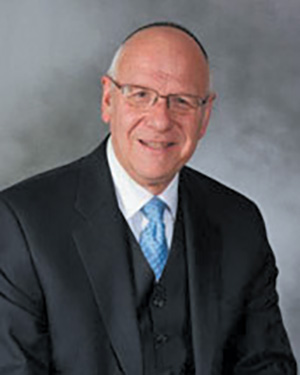
Parshat Toldot
The navi Malachi, whose words echo in today’s haftarah, served the Jewish nation during the time of Bayit Shani and actually was the last prophet of Israel. This selection, the opening prophecy of Sefer Malachi, speaks of God’s choice of Yaakov over Eisav and compares the fate of their respective descendants. It is this opening that convinced Chazal to establish its reading on the Shabbat of Parshat Toldot, the Torah portion that includes the growing friction between these twin brothers.
And yet, the bulk of Malachi’s prophecy deals not with Israel’s chosenness but with her sinfulness. Malachi’s primary criticism focuses upon the ongoing disregard the nation had shown to Hashem as demonstrated through their careless manner of worship. Truthfully, one might wonder why the navi focused upon this specific shortcoming. After all, so many of the earlier prophets de-emphasized the sacrificial rite to the point of exclaiming, “What need have I of your many sacrifices? says Hashem,” (Yishayahu 1:11). These prophets stressed ethical behavior over that of simple ritual, calling for justice and kindness rather than sacramental service.
In actuality, however, the message of Malachi is very much in keeping with those of the previous prophets. Earlier generations had emphasized the Temple service, believing that by offering sacrifices to God they needn’t worry about leading an ethical and moral life. The message of Yish’ayahu and Yirmiyahu et al was not one that rejected the avodah or the korbanot, but rather one that denied the mistaken idea that ritual overrode virtuous behavior. These nevi’im explained that empty gestures that failed to move the people to a higher moral plane were absolutely meaningless in God’s eyes. The nation observed the sacrificial laws scrupulously but ignored their underlying purpose.
Malachi, on the other hand, addressed a different community, a newly returned community who saw little purpose in renewing the sacrificial rite, an understandable view for the new generation that was brought up without the Beit HaMikdash and, therefore, without the sacrificial rite. As a result, the prophet cries, they showed no regard for “God’s table” and little care for the quality of their offerings, often sacrificing their lame and sickly animals to God. These people showed their disdain for the ritual service and, through that, a disdain for Hashem Himself.
The generation of the First Temple focused solely upon Temple worship and ignored their sins of idolatry and immorality.
The generation of the Second Temple rejected idolatry and immorality but ignored Temple worship.
And both generations were wrong.
Like Eisav, whom our rabbis see as a model for kibbud av—respecting one’s parents—yet who believed that one mitzvah was enough, these generations failed to understand the totality of Torah, a demand to honor both God and man, to observe both and reject neither.
It is this blend of obligations that must guide us today as well. We cannot accept an approach that defined religiosity as being limited to the beit knesset or to the street. A proper reverence for those things divine mixed with an understanding and deference to the needs of others is what is expected of us today as it was expected of those living in Malachi’s time.
Only such an approach can help bring to fruition the visions of redemption shared with us by Malachi and by all of our nevi’im.
Rabbi Neil Winkler is the rabbi emeritus of the Young Israel Fort Lee and now lives in Israel.










